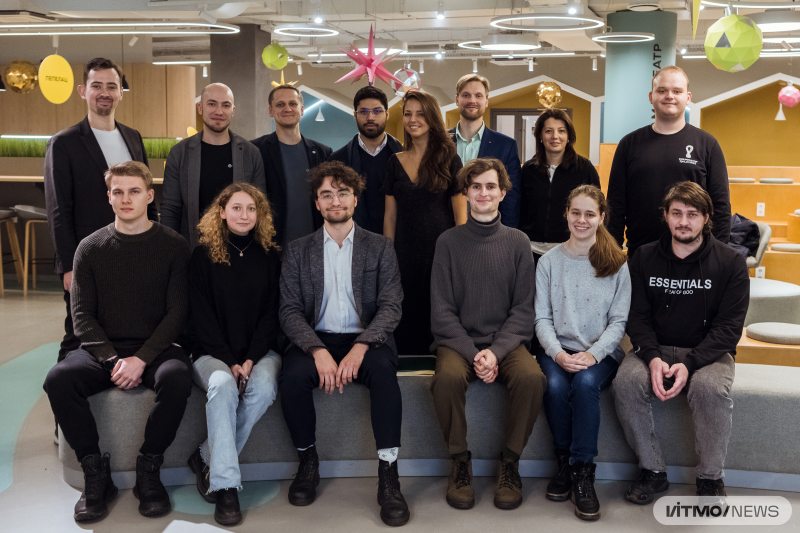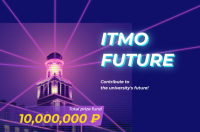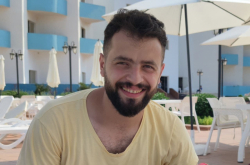The desire of ITMO lecturers to promote and assist creative student initiatives prompted the university to organize its first-ever competition on digital product prototyping.
“Every student has the potential to make the next breakthrough or create an original, worthwhile product. Scientific and technological advances are accelerated through the synthesis of business, science, and education, so when mentorship is added from the start, the results won’t keep you waiting. Our mission is to cultivate creativity in our students, help them produce out-of-box solutions, and test them to produce even more efficient ideas,” emphasized Natalya Bystryantseva, the head of the Creative Technologies module for Master’s students at ITMO University.
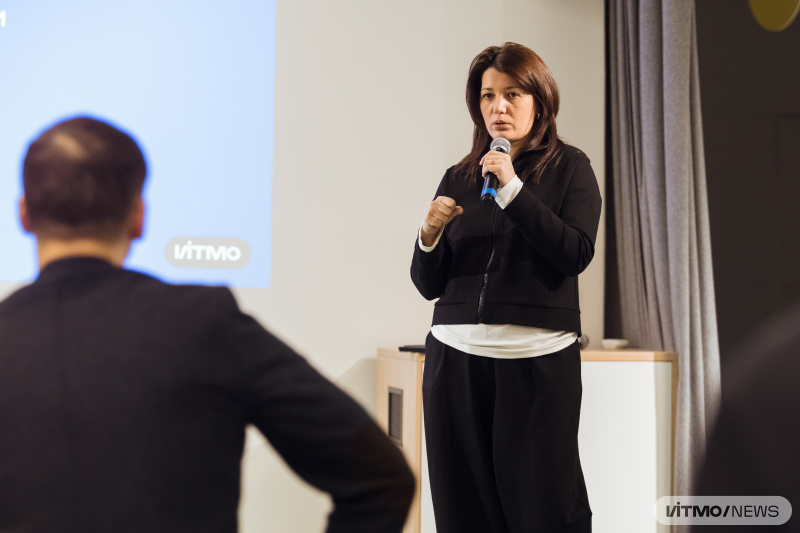
Natalya Bystryantseva. Photo by Dmitry Grigoryev / ITMO.NEWS
The instructors at the university collaborated with the experts of Sberbank’s Department of Digital Business Transformation to develop a topic for a practical task for students. As part of the university-wide course in the fundamentals of conceptual thinking, students of Master’s programs studying in both Russian and English were challenged to design and propose innovative digital tools that can potentially accelerate the real estate sector.
“We’re running digital transformation initiatives for major enterprises in northwestern Russia. In the past, we used to place more emphasis on product quality; now, we try to offer services that are tailored more to the needs of our customers. Sberbank and ITMO University have been working together for a while, and this contest marked yet another significant milestone in our partnership. Students presented a variety of intriguing and creative ideas that align with our work approaches,” noted Sergey Dyuk, the CEO for non-financial services at Sberbank.
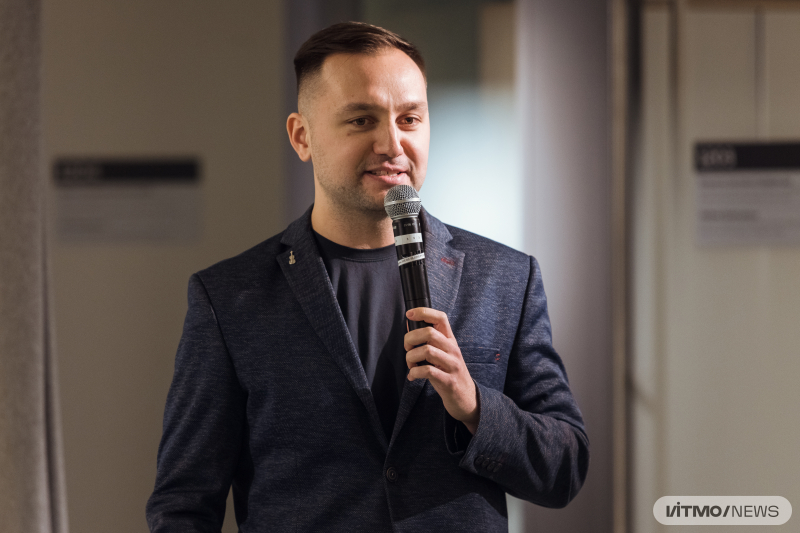
Sergey Dyuk. Photo by Dmitry Grigoryev / ITMO.NEWS
According to Aleksandra Irisova, a course coordinator, the competition was held in several stages over the period of two months, from November to December. Within the first phase, students formed teams (7-10 people), chose a problem that they would like to solve, generated their ideas, and then gave brief talks about them. Students proposed a total of 57 projects, 23 of which were presented to the representatives of ITMO University, Sberbank, the mads creative thinking school, and the communication and branding agency Friends Moscow. As a result, two teams were given a chance to finalize their projects, namely determine the price, audience, and monetization methods, under the guidance of Sberbank’s experts and receive funding for further implementation.
The first team proposed NeighborScape Insight – a tool for selecting housing options based on land project visualization. The AR- and AI-powered platform highlights mapping projects, allowing potential developers and residents to learn more about the structures that will be built near their preferred area.
“With the help of Sber Geoanalytics, we will be able to solve geomarketing problems that come with the use of AI, and thanks to the Domclick service, we will smoothly and seamlessly integrate NeighborScape Insight into the company’s ecosystem and effectively interact with developers,” says Artur Mustafin, the head of the NeighborScape Insight project and a first-year Master’s student at ITMO’s Faculty of Software Engineering and Computer Systems.
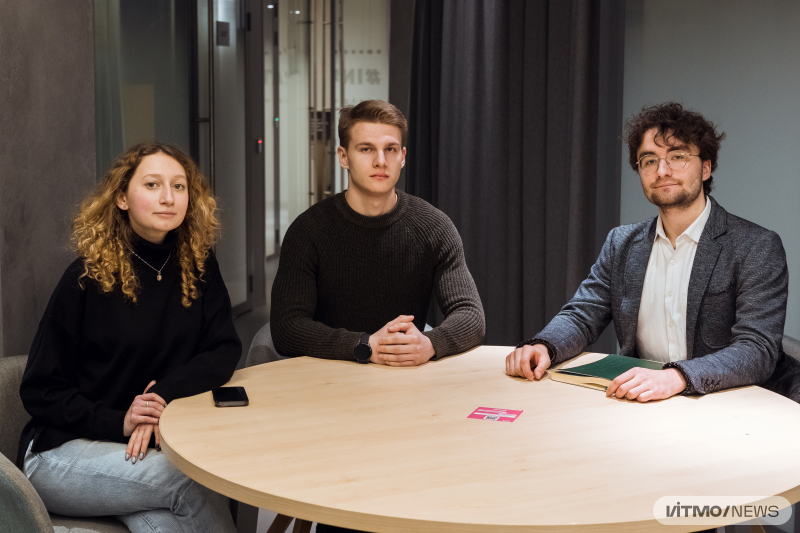
The team of the NeighborScape Insight project. Photo by Dmitry Grigoryev / ITMO.NEWS
The HealthBox smart bedside table, which enables patients to take life-saving drugs accurately and on schedule and alerts family members and doctors about impending medical procedures, helped the second team win. The creators intend to connect their smart device to SberDevices sensors and speakers and incorporate it into a smart home system. HealthBox has an LED strip that visualizes sound data, reminding users to take prescriptions. This feature is especially useful for people who are hard of hearing. If willing, users can store their data in a digital medical record.
“We’ve created the prototype design and architecture for our solution and now we’re going to focus more on analyzing the market and risks, as well as brainstorming modifications to make our product more mobile and affordable. SberHealth will help us solve a range of problems related to data processing, promotion, and recruitment of IT and robotics specialists,” says Alexandra Masharskaya, the head of the HealthBox project and a first-year Master’s student at ITMO’s Institute of Laser Technologies.
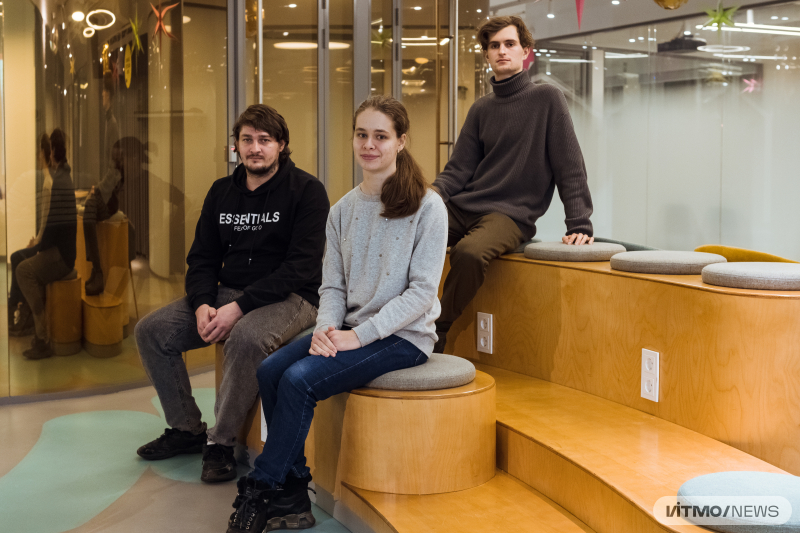
The team of the HealthBox project. Photo by Dmitry Grigoryev / ITMO.NEWS
